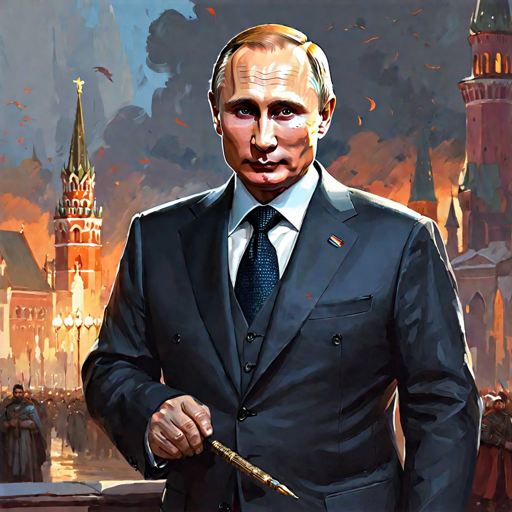
Background and Origin
Born on October 7, 1952, in Leningrad, Soviet Union (now Saint Petersburg, Russia), Vladimir Vladimirovich Putin grew up in a Soviet-era communal apartment. After graduating from Leningrad State University with a law degree in 1975, he began his career in the KGB, the Soviet Union’s main security agency, serving for 16 years in various capacities, including in East Germany.
Personal Life and Relationships
Putin’s personal life, while often kept private, has been a subject of public interest. He was married to Lyudmila Shkrebneva from 1983 until their divorce in 2014, and they have two daughters, Maria and Katerina. Known for his love of outdoor activities, Putin is often portrayed in Russian media partaking in judo, ice hockey, and horse riding.
Defining Characteristics and Personality
Putin is often described as a strong and calculating leader, a persona that he has cultivated through his years in office. His leadership style is characterized by a strong centralized power and a focus on restoring Russia’s prominence on the world stage. He is also known for his assertive foreign policy and his approach towards handling internal and external affairs of the state.
Life Story and Milestones
Putin’s rise to political prominence began in the 1990s when he was appointed as the Deputy Mayor of Saint Petersburg. In 1999, he was appointed as Prime Minister of Russia by President Boris Yeltsin and later assumed the presidency. He has since been a central figure in Russian politics, serving as either President or Prime Minister. Under his rule, Russia has undergone significant political and economic changes.
Achievements and Impact
Vladimir Putin’s tenure has seen significant moments, including economic reforms and the reassertion of Russia’s military power. His policies have been credited with stabilizing the Russian economy and increasing its growth, though they have also been met with criticism for authoritarian practices and the suppression of dissent. Internationally, Putin has been a key player in global politics, with significant influence in regional conflicts and international relations.
Conclusion
As a figure who has significantly impacted Russian and global politics, Vladimir Putin’s leadership continues to be a subject of debate and analysis. His approach to governance, his foreign policy decisions, and his vision for Russia have shaped not only his country’s path but have also had far-reaching implications in the global political arena.